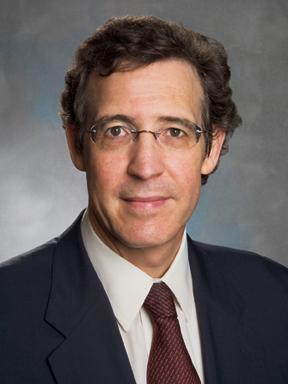
- Intern, Resident, and Assistant Chief Resident (1979-82)
Richard S. Blumberg, M.D., is Director of the Laboratory of Mucosal Immunology at the Brigham and Women's Hospital, Co-director of the Harvard Digestive Diseases Center, and Professor of Medicine at Harvard Medical School. A senior physician and Chief of Gastroenterology, Hepatology and Endoscopy at the Brigham and Women's Hospital, he also serves as a consultant at the Dana-Farber Cancer Institute. Internationally recognized in the areas of mucosal immunology and IBD pathogenesis, his translational work spawned a new class of antibody-based therapeutics (currently in clinical trials globally). He is a member of the American Society of Clinical Investigation and the Association of American Physicians, a Past-President of the Society of Mucosal Immunology, a past chair of the National Scientific Advisory Committee of the CCFA, and an active member of the AGA (and has served on AGA committees). He has served as associate editor, guest editor and member of the editorial board of Gastroenterology.
Dr. Blumberg received his M.D. from Jefferson Medical College of the Thomas Jefferson University, Philadelphia, PA; served his internship, residency and assistant chief residency at NYP/Weill Cornell; completed clinical and research fellowships in infectious diseases at Massachusetts General Hospital, a research fellowship in medicine at Harvard Medical School and the Dana-Farber Cancer Institute in the Laboratory of Molecular Immunology (directed by Dr. Cox Terhorst), and a clinical fellowship in gastroenterology at the Brigham and Women's Hospital. He recently received a William Beaumont Prize for major contributions that have significantly advanced gastroenterological basic or clinical research, and has 300 peer-reviewed and non-peer-reviewed publications, books and book chapters.
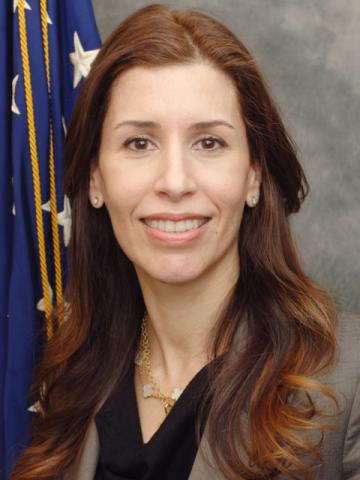
- Resident (1996-99)
Dr. Luciana Borio is the Acting Chief Scientist at the U.S. Food and Drug Administration (FDA). In this capacity, Dr. Borio leads and coordinates FDA's cross-cutting scientific and public health efforts, including the Advancing Regulatory Science Initiative and the Medical Countermeasures Initiative (MCMi). She also provides leadership and support for the broad portfolio of activities overseen by the Office of the Chief Scientist.
After receiving her M.D. from the George Washington University, Dr. Borio completed her residency in internal medicine at the New York-Presbyterian Hospital/Weill Cornell Medical Center, as well as a combined fellowship in infectious diseases (at Johns Hopkins University) and critical care medicine (at the National Institutes of Health). She continues to practice medicine at Johns Hopkins Hospital. Dr. Borio served as an assistant professor of medicine at Johns Hopkins University, senior associate at the University of Pittsburgh Medical Center – Center for Biosecurity, and advisor on biodefense programs for the U.S. Department of Health and Human Services. She joined the FDA as a medical reviewer and then served as the FDA's Assistant Commissioner for Counterterrorism Policy and Director of its Office of Counterterrorism and Emerging Threats. Dr. Borio played a key role in the FDA's response to the 2014 West Africa Ebola epidemic and continues to oversee its preparedness and response activities for emerging threats.
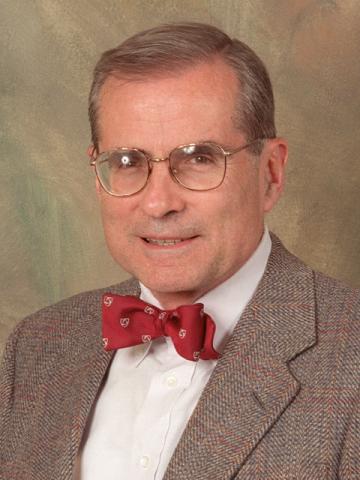
- Resident (1961-64)
H. Franklin Bunn, M.D. completed his residency at NYP/Weill Cornell from 1961 to 1964. He is director of the Hematology Division at Brigham and Women's Hospital, Professor of Medicine at Harvard Medical School, and an Investigator at the Howard Hughes Medical Institute. He is one of the world's leading authorities in disorders of hemoglobin, such as thalassemia and sickle cell disease. He has participated in many National Institutes of Health Advisory groups and councils and was Associate Editor of Blood. He was President of the American Society of Hematology (1992-93) and recipient of the Stratton Medal and the Coulter Award for Lifetime Achievement in Hematology.
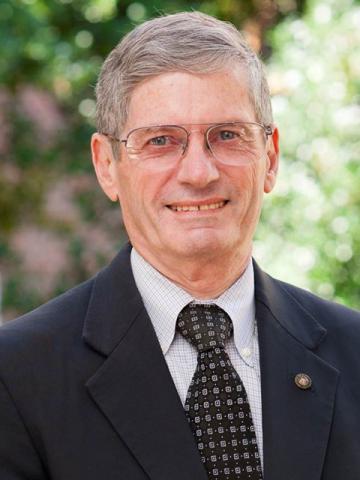
- House Officer (1968-70)
Robert M. Carey, M.D., was a house officer at NYP/Weill Cornell from 1968 to 1970. He is the David A. Harrison III Distinguished Professor of Medicine; Dean, Emeritus; and University Professor at the University of Virginia. He is one of the world's foremost endocrinologists, specializing in cardiovascular endocrinology and hypertension. At the University of Virginia, Dr. Carey was Head of the Division of Endocrinology and Metabolism (1978-86) and Dean of the School of Medicine (1986-2002). He has received over 35 years of continuous funding for research from the National Institutes of Health. He has been President of the Endocrine Society and of the American Clinical and Climatological Association and Chair of the Council for High Blood Pressure Research of the American Heart Association.
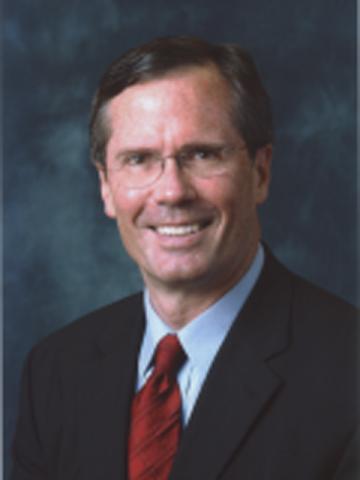
- Resident (1978-81)
Richard F. Daines, M.D. (deceased 2011), a graduate of the NYP/Weill Cornell residency program (1978-81) was a prominent physician leader in the New York area for over 25 years. He served as Senior Vice President for Professional Affairs and Medical Director at St. Barnabas Hospital, Bronx, NY in 1994, President and CEO of St. Luke's-Roosevelt Hospital Center in Manhattan, NY in 2007, and Commissioner of the New York City Department of Health in 2007. Among his many achievements as commissioner, he championed key state policies to increase coverage for uninsured New Yorkers, improve the safety and quality of health care, and achieve a high-performing health care system.
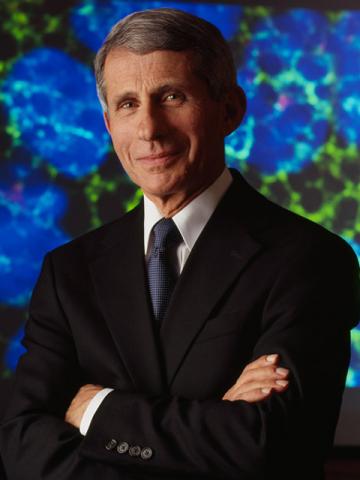
- House Officer (1966-68)
- Chief Resident (1971-72)
Anthony S. Fauci, M.D., was a house officer (1966-68) and chief resident (1971-72) at NYP/Weill Cornell. He currently serves as the Director of the National Institute of Allergy and Infectious Diseases, one of the centers at the National Institute of Medicine-National Institutes of Health. He has been a lead investigator since the beginning of the HIV epidemic; isolating the virus, understanding its pathogenesis, elucidating the immunology to treat and hopefully prevent the infection one day. Dr. Fauci was awarded the 2008 Presidential Medal of Freedom and shared the 2007 Lasker Award with Drs. Alain Carpentier and Ralph Steinman
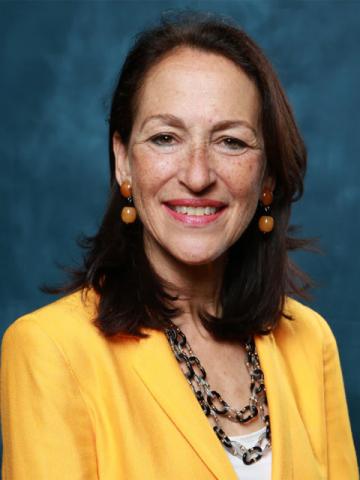
- Resident (1983-86)
Margaret A. Hamburg, M.D., completed her internship and residency (1983-86) at NYP/Weill Cornell before a long, successful career that included her role as the 21st Commissioner of the Federal Drug Administration (FDA), 1991 to 1997 - the second woman to ever be nominated for this position. She was also one of the youngest persons ever elected to the Institute of Medicine of the National Academy of Sciences (IoM) in 1994. She is a highly regarded expert in community health and bio-defense, including preparedness for nuclear, biological and chemical threats.
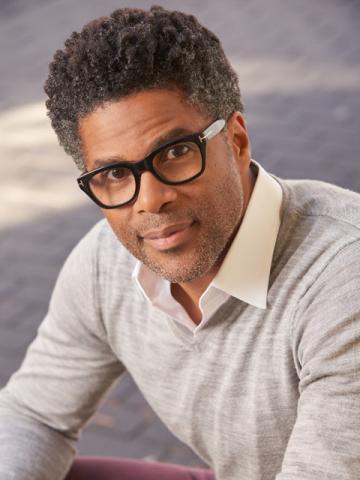
- Resident (1994-97)
Dr. LaMar Hasbrouck is one of the founding members of the Minority Housestaff Committee. He completed his internal medicine residency at New York-Presbyterian Hospital in 1997. He is now the executive director of the National Association of County and City Health Officials (NACCHO) in Washington, D.C., representing the country's 2,800 local health departments. As the association's chief executive, he leads the mission to be a leader, partner, catalyst, and voice for local health departments. Prior to joining NACCHO, Dr. Hasbrouck was Commissioner of Health for Illinois, where he worked with nearly 100 local health departments to protect the health and improve the lives of 13 million residents, and led the development of statewide blueprints for health workforce expansion and population health-healthcare integration. Previously, Hasbrouck was the only county official in New York to lead simultaneously both the public health and mental health departments. A former disease detective at the Centers for Disease Control and Prevention, he was actively engaged in two of the largest global health initiatives in history: polio eradication and the U.S. President's Emergency Plan for AIDS Relief. A board-certified physician, Hasbrouck holds a B.A. and M.P.H. from Berkeley and an M.D. from UCLA.
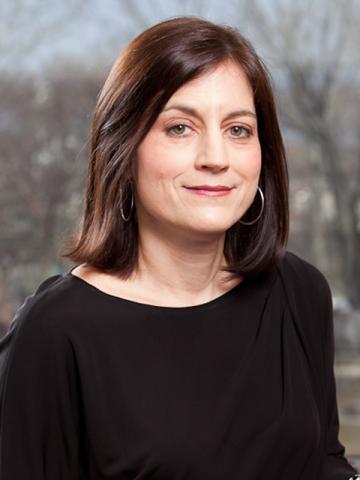
- Resident (1987-90)
Christine Laine, M.D., M.P.H., is Editor in Chief of Annals of Internal Medicine. She is a practicing physician in Philadelphia and board-certified in internal medicine. Dr. Laine is a Clinical Associate Professor in the Division of Internal Medicine at Jefferson Medical College. Dr. Laine first joined Annals of Internal Medicine in June 1995 as an Associate Editor and became a Deputy Editor in 1998 and Senior Deputy Editor in April 2008. In July 2009, Dr. Laine became the Editor in Chief and a Senior Vice President at the American College of Physicians.
Dr. Laine graduated summa cum laude, with a double major in biology and writing, from Hamilton College in Clinton, New York. She received her medical degree from State University of New York at Stony Brook and completed residency training in internal medicine at The New York Hospital (Cornell University) and a fellowship in general internal medicine and clinical epidemiology at Beth Israel Hospital (Harvard University). Dr. Laine earned her Master of Public Health degree, with a concentration in quantitative methods and clinical epidemiology, at Harvard University.
Dr. Laine is active in the world of medical journalism and holds leadership positions in the International Committee of Medical Journal Editors, the Council of Science Editors, and the Ethics Committee of the World Association of Medical Editors. She has been instrumental in the development of editorial policy about such issues as authorship and conflicts of interest in medical research.
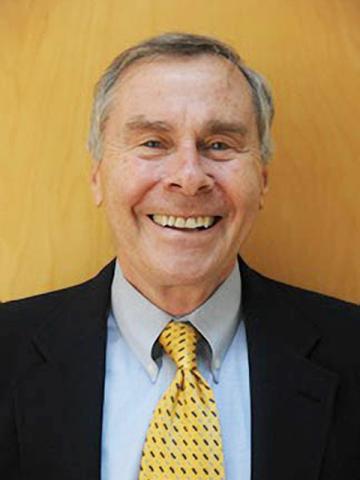
- Resident (1962-63)
- Fellow (1964-67)
Gerald L. Mandell, M.D., completed his residency (1962-63) and infectious diseases fellowship (1964-67) at NYP/Weill Cornell. He is the emeritus Owen R. Cheatham Professor of the Sciences, Chief of the Division of Infectious Disease, and Professor of Medicine at the University of Virginia School of Medicine. His many honors and awards, including: President of the Infectious Diseases Society of America (IDSA), Councilman of the National Institutes of Health for Infectious Diseases, Chair of the American Board of Internal Medicine section on Infectious Diseases, and President of the American Clinical and Climatologic Association. He is a founding editor of the leading infectious diseases book in the world, Principles and Practice of Infectious Diseases, and was elected to membership in the Institute of Medicine of the National Academy of Sciences (IoM).
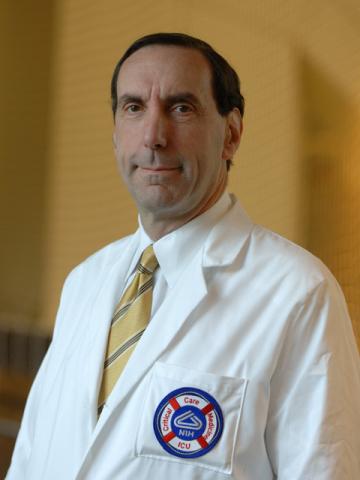
- Resident (1972-74)
- Fellow (1975-77)
Henry Masur, M.D., was a resident (1972-74) and infectious diseases fellow (1975-77) at NYP/Weill Cornell. He is Chief of the Critical Care Medicine Department at the Clinical Center, National Institutes of Health. While on the faculty at Cornell, he wrote one of the first published descriptions of HIV/AIDS. At the National Institutes of Health, he has focused on HIV-related opportunistic infections and on the management of infections in critically ill patients. He is a past President of the Infectious Disease Society of America and has been recognized as a Master of the American College of Physicians. He is also the co-editor of major guidelines on HIV management and ICU-related infections.
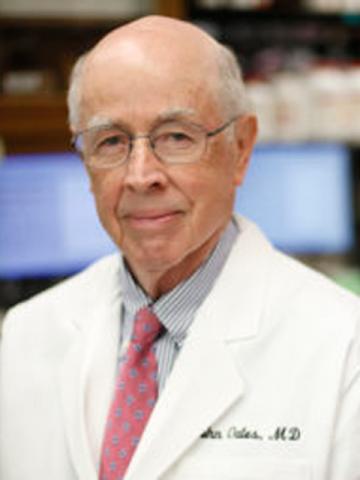
- Resident (1956-58)
- Fellow (1961-62)
John A. Oates, M.D. (deceased 2019), was a resident (1956-58) and cardiology fellow (1961-62) at NYP/Weill Cornell. At the NIH (Clinical Center), he served as a Clinical Associate and Senior Investigator prior to joining the faculty of the Vanderbilt University School of Medicine where he founded the Hypertension and Clinical Pharmacology programs. He was Chair of Vanderbilt University's Department of Medicine from 1983 to 1997, and is the Thomas F. Frist, Sr. Professor of Medicine and Professor of Pharmacology. Dr. Oates has been elected to the Institute of Medicine of the National Academy of Sciences (IoM), the American Academy of Arts and Sciences, and to Fellowship in the American Association for the Advancement of Science.
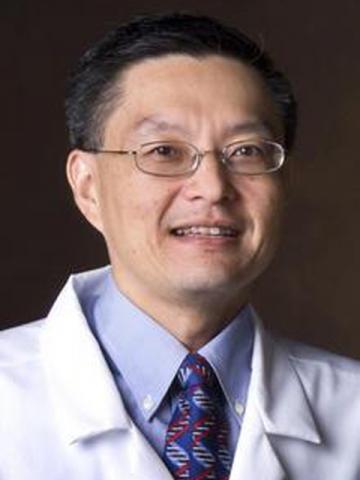
- Intern, Resident (1999-2000)
William Pao, M.D., Ph.D., completed house staff training in Internal Medicine at NYP/Weill Cornell (1999-2000), and a fellowship in medical oncology at Memorial Sloan-Kettering Cancer Center. Dr. Pao is Associate Professor of Medicine, Cancer Biology, and Pathology/Microbiology/Immunology at Vanderbilt University, and is the Ingram Associate Professor of Cancer Research and the Director of Personalized Cancer Medicine at Vanderbilt-Ingram Cancer Center. In 2011, he became the Director of the Division of Hematology/Oncology at Vanderbilt University Medical Center. In his laboratory, he has developed a basic and translational research program that is contributing seminal contributions to the understanding of molecular mechanisms in lung cancer pathogenesis. He has developed and successfully tested new anti-cancer strategies and therapies in animal models and humans, helping to change the standard of care in lung cancer, and his laboratory recently established a high-throughput screen to identify systematically kinase fusions in cancers, using next-generating sequencing technologies.
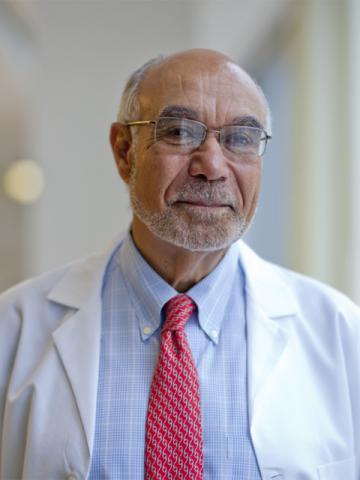
- Fellow (1979-80)
Dr. Jean Pape received his medical degree in 1975 at Cornell Medical College, and later returned as an Infectious Disease Fellow at New York Hospital - Cornell Medical College from 1979 until 1980. Dr. Pape is the founding director of Groupe Haïtien d'Étude du Sarcome de Kaposi et des Infectieuses Opportunistes (GHESKIO), which conducts innovative research on HIV, tuberculosis and cholera. GHESKIO provides free testing, counseling and care for HIV infection and tuberculosis to over 20,000 persons annually. After the earthquake of 2010, GHESKIO became a camp and an emergency field hospital for thousands of Haitian men, women, and children who were displaced.
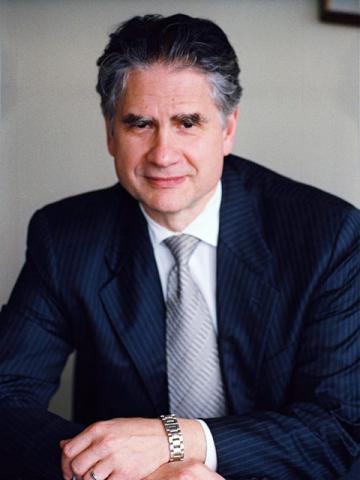
- Resident and Assistant Chief Resident (1976-79)
Jonathan I. Ravdin, M.D., was a resident and assistant chief resident (1976-1979) at NYP/Weill Cornell. He is the Dean and Executive Vice President of the Medical College of Wisconsin. After serving as an Infectious Disease and Geographic Medicine Faculty member at the University of Virginia, he moved to Case Western Reserve University, as Professor of Medicine and International Health, Vice Chair of Medicine and Chief of Medicine at the Cleveland VA Medical Center. He then served as Chair of Medicine at the University of Minnesota Medical School before moving to Wisconsin. He has received 27 years of continuous funding support from the National Institutes of Health. He is a Fellow of the American Association for the Advancement of Science and a member of the American Society for Clinical Investigation and the Association of American Physicians.
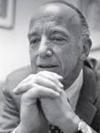
- Resident (1950-52)
David E. Rogers, M.D., (deceased 1994) graduated from Cornell University Medical College in 1948. After college, he began his residency at Johns Hopkins (Osler Service). In 1950, he returned to NYH-CMC as a United States Public Health Service postdoctoral fellow and resident with the Department of Medicine, Division of Infectious Diseases. He was the chief resident for the Department of Medicine from 1951-1952 and in 1955 was appointed to Chief of the Division of Infectious Diseases. From 1959-1968, Dr. Rogers was the youngest chair of the department of medicine at Vanderbilt University Hospital before moving on to become Dean at the Johns Hopkins School of Medicine. In 1986, he accepted the Walsh McDermott University Distinguished Professor of Medicine at CUMC. He served on the New York State AIDS Advisory Council, the National Commission on AIDS (appointed by President George H. W. Bush), and at the New York Academy of Medicine. In addition, he served as the first president of the Robert Wood Johnson Foundation. Dr. Rogers' legacy lives on with our department's annual David Rogers Research Competition and Award.
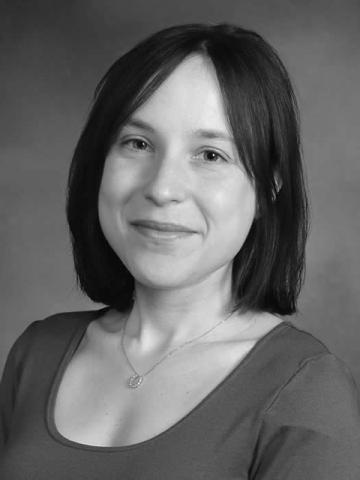
- Fellow (2009-12)
Dr. Lisa Rosenbaum is a cardiologist at Boston's Brigham and Women's Hospital, instructor at Harvard Medical School, and a national correspondent for the New England Journal of Medicine. Her work has also appeared in the New Yorker, New York Times and Boston Globe.
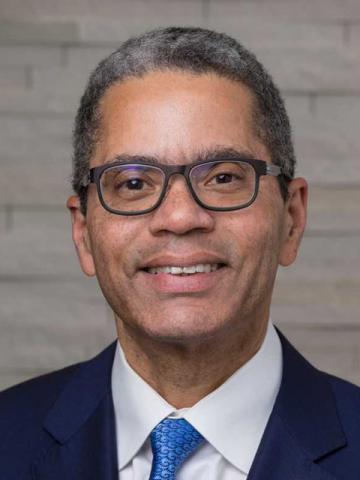
- Resident (1986-87)
Bruce Siegel, M.D., trained at NYP/Weill Cornell from 1986-1987, and only five short years later became the New Jersey Commissioner of Health from 1992 to 1994. He had an illustrious career in hospital administration serving as the president of two different Public Hospitals and Health Systems, Tampa General Healthcare and the New York City Health and Hospitals Corporation. He later served as the Director of the Center for Health Care Quality and Professor of Health Policy at the George Washington University School of Public Health and Health Services from 2008 to 2010. He is currently the CEO of the National Association of Public Hospitals and Health Systems.
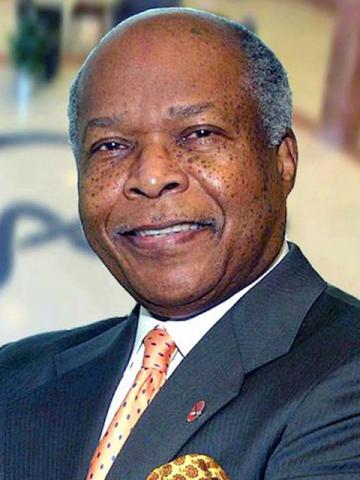
- House Officer (1958-60)
Louis W. Sullivan, M.D., was a house officer at NYP/Weill Cornell from 1958 to 1960. Trained as a hematologist, he went on to become the founding dean and first president for the Morehouse School of Medicine (1975) and is now President Emeritus. He was nominated and served under the first President George Bush, as the Secretary of Health and Human Services from 1989 to 1993.
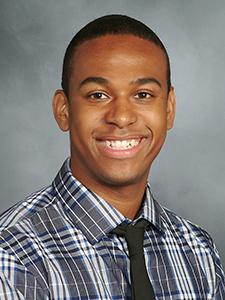
- Resident (2013-2016)
Bryant Cameron Webb, M.D., J.D., physician-lawyer and 2016 graduate of the Internal Medicine Residency Program at Weill Cornell Medicine and NewYork-Presbyterian/Weill Cornell Medical Center, served as a 2016 White House Fellow in the Office of Cabinet Affairs as the primary liaison between the president and the cabinet. For Dr. Webb, who is interested in general internal medicine and policy making – with a particular passion for addressing social determinants of health – this fellowship will enable him to see firsthand how the federal government operates before returning to medicine. In addition to his work with the Office of Cabinet Affairs, Dr. Webb will spend the next year helping with Barack Obama's 'My Brother's Keeper Initiative', mentoring and supporting young boys and men of color in order to address persistent opportunity gaps in areas such as health, nutrition and education.

